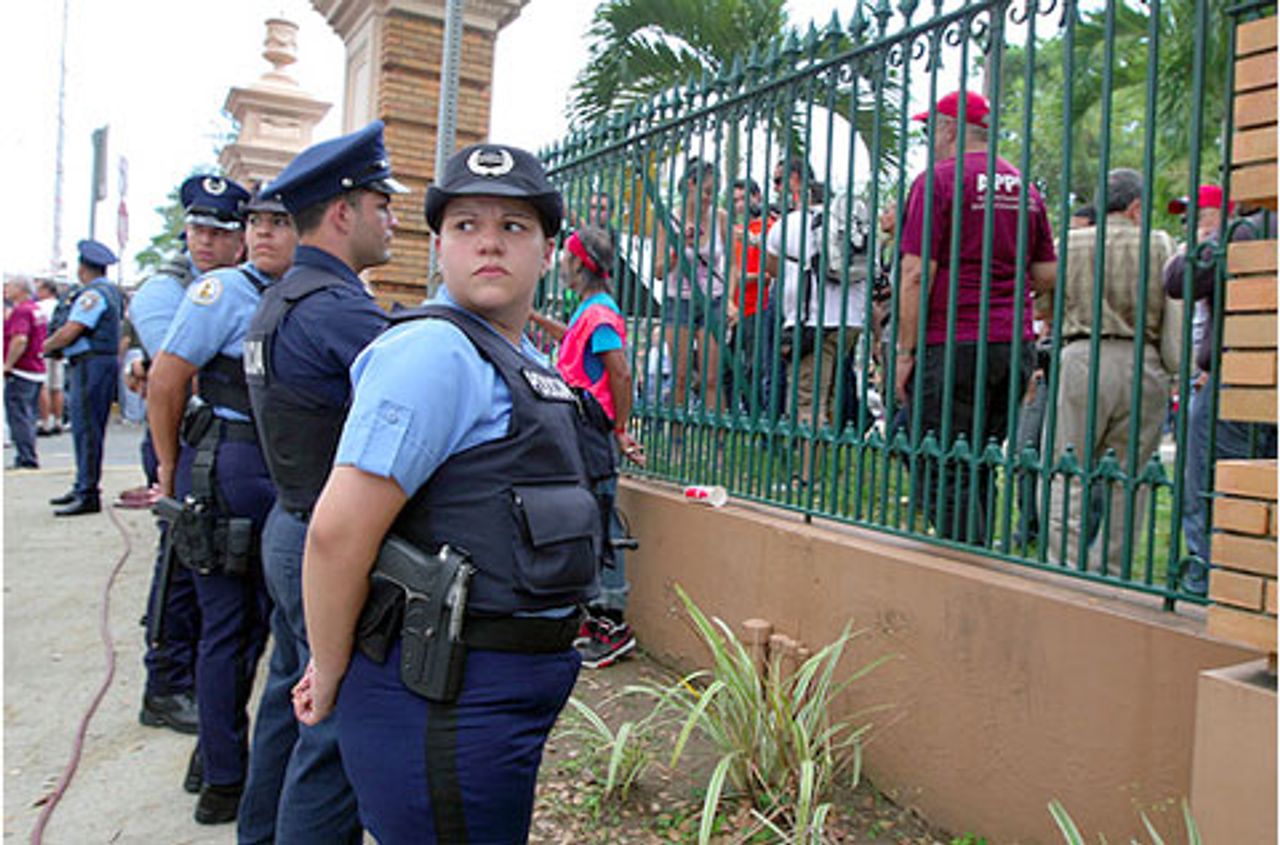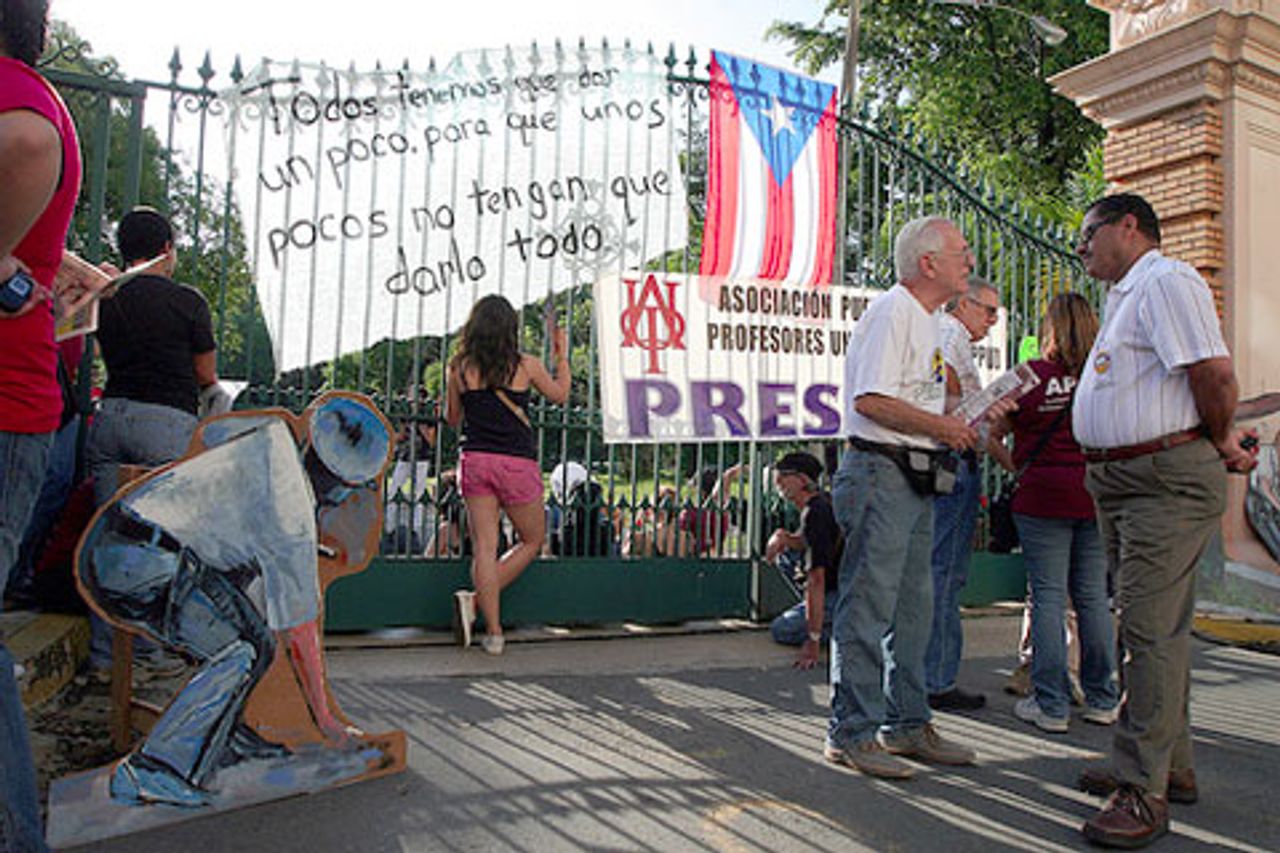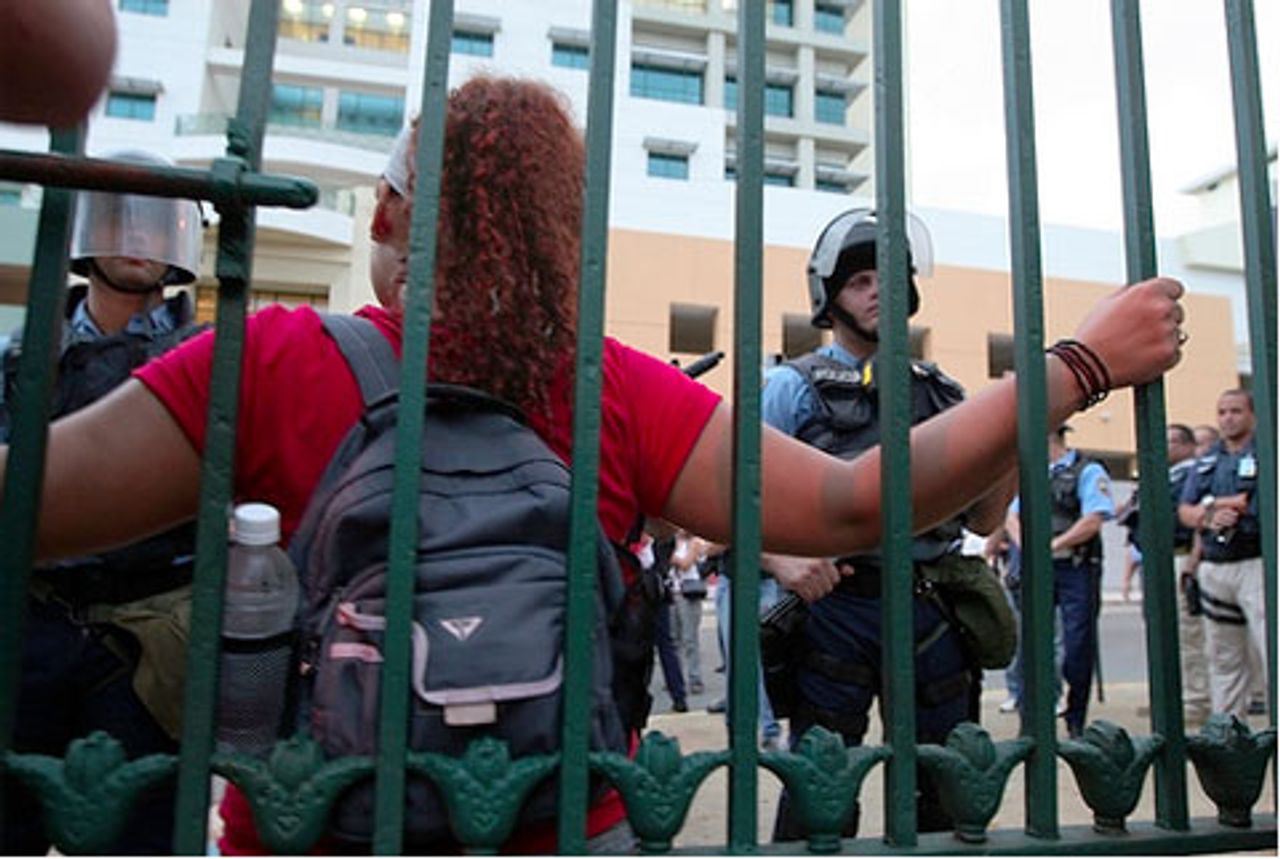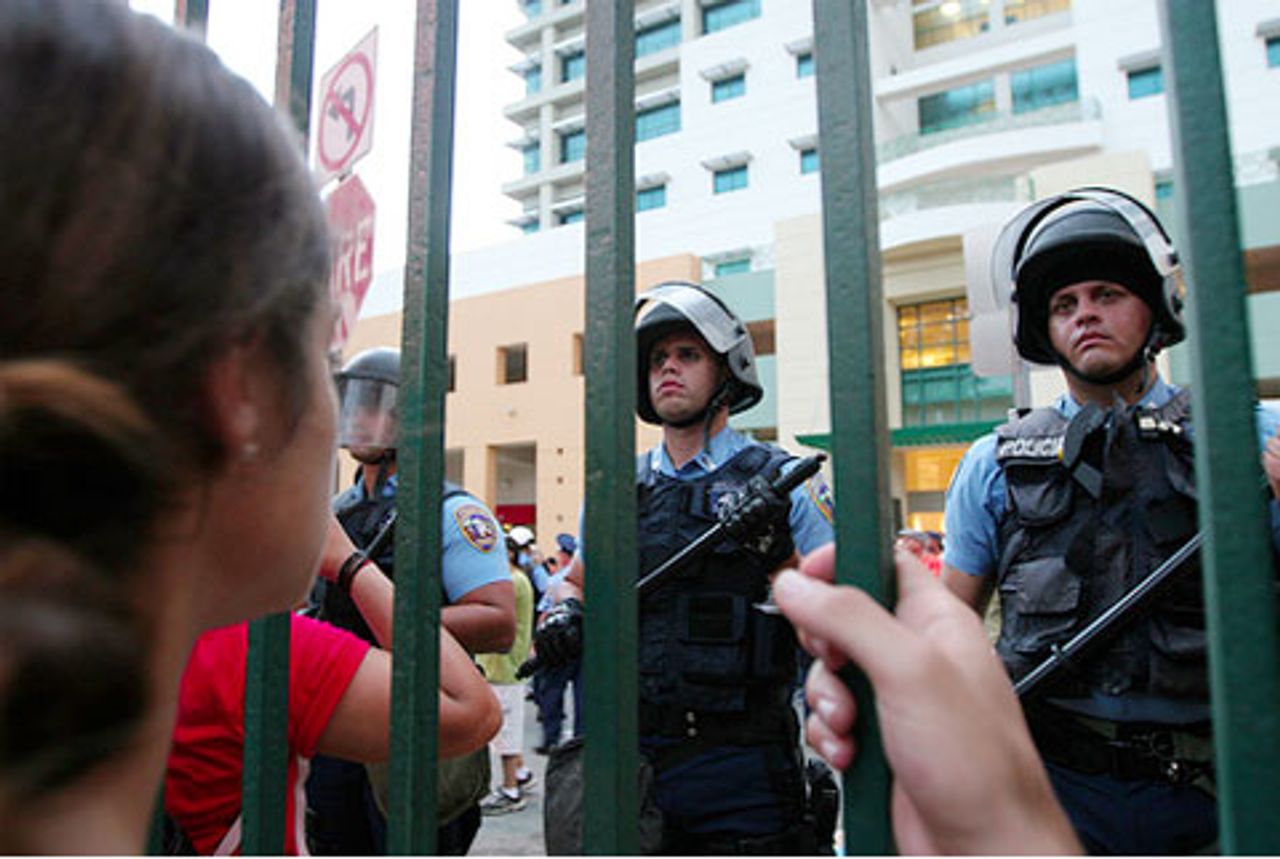 Photo: Noelia González Casiano
Photo: Noelia González CasianoOn Friday, May 14, San Juan police and Puerto Rican security forces attempted to break a student strike by laying siege to the campus of the Rio Piedras campus of the University of Puerto Rico, in violation of the long-standing tradition of autonomy at all UPR campuses.
Rio Piedras students have been on strike since April 22, in defense of education rights. Ten of the 11 campuses that compose the University of Puerto Rico system are also on strike.
The confrontation took place a day after an assembly of 2000 students voted to continue the strike.
University authorities had facilitated the student assembly at the Puerto Rico Convention Center in San Juan. The university even provided buses to transport the students, hoping that a tentative agreement between student and trustee negotiators would be ratified. The tentative agreement, rejected by the majority of students, had restored tuition waivers, one of the students’ demands.
 Photo: Noelia González Casiano
Photo: Noelia González CasianoThe assembly vote revealed divisions among the students themselves, with elements in the leadership around Student Council President Gabriel Laborde open to compromise, and a more intransigent layer of students who see the student struggle in the context of the struggle against budget cuts and austerity measures, determined to continue the struggle.
Following the “no” vote, university trustees threatened to shut the campus down and demanded that the students leave the campus, which is occupied by 300 strikers. The trustees obtained a court order granting the police authority to evict the strikers.
However, UPR President José Ramón de la Torre appeared to intervene against these measures, suggesting that the campus closure and eviction depended on the outcome of further negotiations between the university, students, and the faculty.
 Photo: Noelia González Casiano
Photo: Noelia González CasianoThough police retreated from an all out assault last Friday, they proceeded to blockade all entrances into the university and cut off communications and food deliveries. The father of one student, who was bringing food for the strikers, was violently dragged away.
On Sunday, the police also blocked a march by Puerto Rican artists in solidarity with the student strikers, preventing the delivery of food, water and ice.
The authorities’ decision to prevent deliveries of food and water has galvanized broad layers of Puerto Rican society in support of the students.
Lawyers hired by parents denounced the police action, pointing out that the security forces do not have the authority to stop food deliveries. They insisted that a court order authorizing the police action does not grant any authority to stop food deliveries.
The court did not immediately rule on the lawyers’ request, and a hearing is scheduled Monday.
On Sunday, a civic coalition “Todo Puerto Rico por Puerto Rico” (Puerto Ricans all for Puerto Rico) called on all its supporters to rally at the university gates in defense of the students and to protest the government’s intention to “punish students with hunger and thirst.”
A general strike has been called for Tuesday, May 18, in support of the students.
 Photo: Noelia González Casiano
Photo: Noelia González CasianoIn addition to retention of the tuition waivers, the strikers are demanding the restoration of $100 million in budget cuts and the cancellation of the possible privatization of higher education in Puerto Rico.
Students are also demanding that the university open its financial accounts to all and greater student participation in university governance.
The student strike, now in its fourth week, is the most recent in a chain of mass working class protests in reaction to escalating budget cuts at the hands of Governor Luis Fortuño’s administration. Attempting to impose the burden of the financial crisis on the Puerto Rican working class, Fortuño set out last year to cut the island administration’s budget by 20 percent, $2 billion, despite the deep financial crisis and recession that has hit Puerto Rico. The official unemployment rate in the US island possession has reached 16.2 percent.
Last September, the Puerto Rican government sacked thousands of state workers. In response, workers carried out a one-day protest general strike, supported by university students.
Since the beginning of the student strike, university trustees and the Fortuño administration have oscillated between negotiations and repression.
Among the students opposing an end to the strike on the basis of a compromise that leaves essential demands unmet, some have called on Fortuño to increase taxes on the social layer that he himself represents—Puerto Rico’s corporations (mainly transnational pharmaceuticals) and on the wealthy—and hope to use a combination of popular strikes and protests to pressure him into doing so.
The strike, like the earlier mass popular struggles across the island, poses the need for a fundamentally new perspective based upon the fight for political power on the basis of a socialist program to replace Fortuño and the corporate and financial interests that he represents with a workers government based on a socialist program. We urge students in Puerto Rico to turn to and join the International Students for Social Equality to fight for that perspective in Puerto Rico and internationally.
